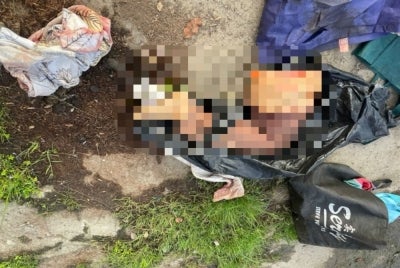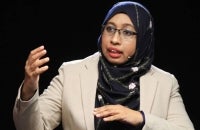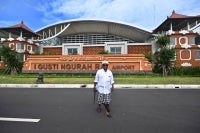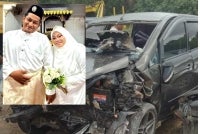Detect lung cancer early through screening, expert says

SHAH ALAM - In the past five years, there have been remarkable strides in the global landscape of lung cancer diagnostics and treatments, offering realistic hope for patients.
However, the significant challenge persists as the majority of lung cancer cases are still diagnosed at late stages, particularly stages three and four.
Sunway Medical Centre Consultant Cardiothoracic Surgeon Dr Anand Sachithanndan emphasised the urgent need to detect the disease earlier for curative interventions and improved outcomes.
Speaking at 'A Breath For Fresh Hope' forum held in Roche Malaysia last week, Dr Anand acknowledged the transformative impact of precision diagnostics and personalised therapies in revolutionising lung cancer care.
"These are not just fancy words. We talk about being able to study the biology of the tumour in detail, next-generation sequencing, genomic molecular profiling and novel treatments, like antibody drug contributes, immunotherapies and oral targeted therapies.
"These advancements, including next-generation sequencing and novel treatments like immunotherapies, have translated into better survival rates.
How to detect the disease early?
Dr Anand said despite these breakthroughs, the National Cancer Registry Report for Malaysia (2012-2016) revealed that nearly 95 per cent of cases were detected at advanced stages.
He also said the challenge was to pick up the disease earlier, adding that it was potentially curable, amenable to treatments with a curative intent, better outcomes and it was also cheaper for the patient and for society at large.
"The key challenge is to raise awareness and implement targeted screening measures.
"Red flag symptoms such as a persistent cough and recurrent chest infections are crucial indicators, but the difficulty lies in the fact that early-stage lung cancer often presents with little or no symptoms.
This is where we push the agenda for screening, which is to pick up the disease before one develops symptoms," he said.
The surgeon highlighted the necessity of targeted screening, particularly for high-risk populations.
While traditionally associated with smokers, the criteria for at-risk individuals extended to those over 45-years-old with a history of smoking, emphasising a minimum pack a day for 20 years or two packs a day for 10 years.
Download Sinar Daily application.Click Here!















